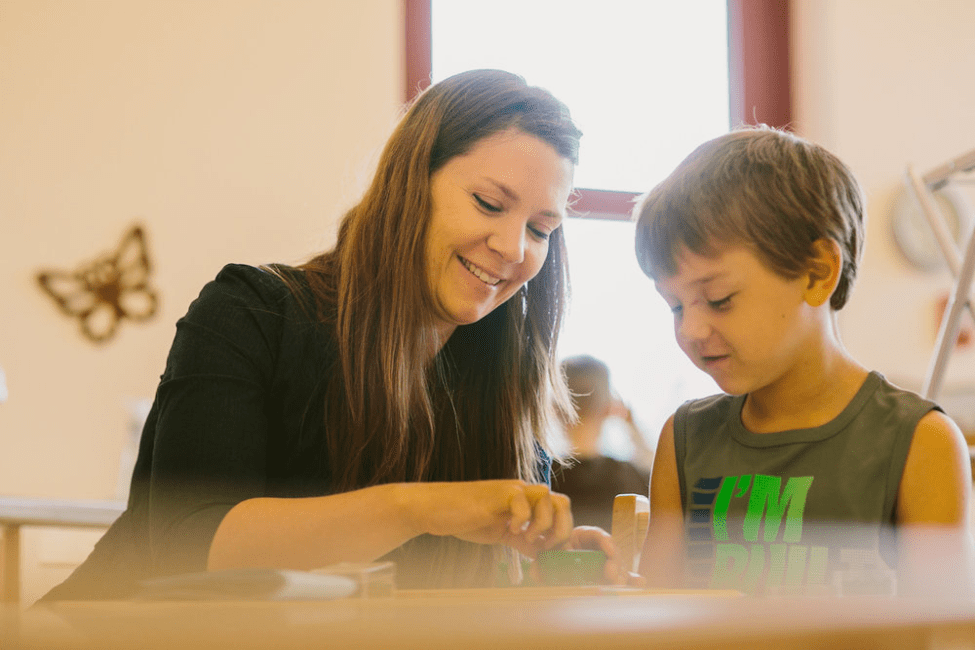A Montessori teacher must establish a climate of emotional support, helpfulness, and consideration. The teacher must relinquish a pediatric role and serve more as a resource person. In a Montessori class deductive teaching is rare, and inductive learning prevails.
Evaluative tactics are abandoned, and children are not compared with their peers. A Montessori teacher must be a keen observer, capable of determining when the child is ready to encounter advanced exercises.
Scientific techniques of child study are stressed in Montessori teacher training which, incidentally is controlled entirely by organizations such as the Association Montessori International (AMI).
A Montessori teacher must arrange her learning materials well, and must not be authoritative. A Montessori teacher must be a sound model for her children, temperamentally, linguistically, and organizationally.
A Montessori teacher must be clean, she must not interfere with the child (by praise or motivation) once concentration has been established; self-discipline is very important for the teacher who must refrain from creating dependency relationships with her children.
This is one of the most basic differences between conventional nursery-kindergarten practices and the Montessori Method.
The former stresses the creation of an emotional bond between teacher and child; a strong teacher-pupil relationship is frequently viewed as the key to the child’s successful learning. For Montessori, the critical relationship is that between the child and his learning materials.
Read Also: Principles of Learning and Instruction: The Montessori Method
Critique of the Montessori Method

Many comments have been made on the Montessori Method but the most relevant are directed against her philosophy and contentions about learning.
Montessori placed too much emphasis on the child’s mastery of the physical environment. The social aspect of education has been neglected. Her rigid materials and classroom layout somewhat restrict the children’s individuality.
Montessori is not consistent in her proposals regarding liberty and discipline. Self-expression finds little encouragement from her didactic materials and the children are too dependent on them.
Teachers should be cautious with the Montessori materials. They should not be considered so sacred that scrupulous evaluation and modification are restrained.
Flexibility should prevail in the use of materials. A greater variety of experiences, particularly those aesthetic, is necessary to provide a more balanced program.
Read Also: Motivation and It’s Relation to Learning
Some have also raised the issue of whether the Montessori Method truly accommodates individual differences among children.
For Example:
Is the same sequence of activities ideal for all children?
Does the prescribed format permit blunt individual differences in creative expression?
The answers to these questions should have been easy to find except that the Montessori Method lacks heuristic power. However, one does not have to accept Montessori philosophy to make constructive use of her teaching methods.
Also, teachers could choose which of her concepts, materials, and procedures will best serve the children in the context of “today’s individual and cultural needs”.
In conclusion, the Montessori method, despite its shortcomings, remains the single most popular method of facilitating sensory-motor education in preschools.
The Montessori method reflects the conviction that children’s learning could be enhanced by the appropriate methods.
There are principles of learning and instruction peculiar to Montessori.
A Montessori teacher must establish a climate of emotional support, helpfulness, and consideration.
Read Also: Play: The Montessori Method in Teaching and Learning
A Montessori teacher must be a sound model for children, especially in the areas of temperament, language, and organization.
Criticism of the Montessori Method centers around her philosophy and contentiousness about learning.
